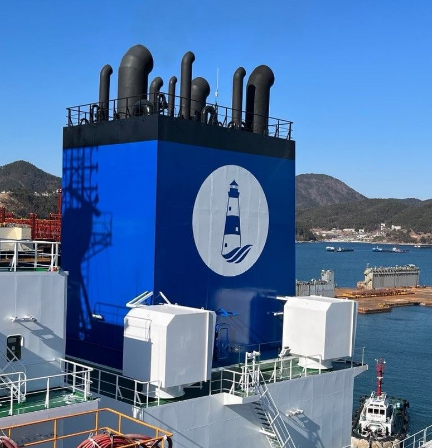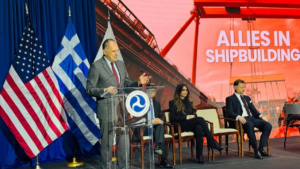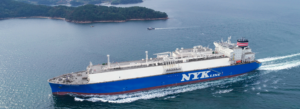
US tanker owner International Seaways boosts its fleet portfolio with new orders in South Korea´s yards. The owner has exercised an option to build two more LR1 vessels at South Korea’s K Shipbuilding, taking its orderbook at the yard to four.
The order is part of the original deal with Korea’s K Shipbuilding to build a total of four scrubber-fitted, dual-fuel LNG ready LR1 ships at a price tag of around $231 million.
Two contracts were executed in August this year, with two additional options that were exercised in October 2023.
The ships are expected to be delivered beginning in the second half of 2025 through the first quarter of 2026.
After delivery, the ships are expected to join the company’s niche, Panamax International Pool.
Earlier this year, the tanker shipowner sealed time charter deals for a duration of three years on a 2008-built MR.
In the year 2023, International Seaways has entered into six, time charter deals, for one 2017-built Aframax, for three 2008-built MRs, for one 2011-built MR, and one 2012-built Suezmax.
The charters for the six ships have durations of two to three years, as the owner reveals in its financial report for Q32023.
The company also confirmed MR sales of two 2008-built MRs. The ships exited the fleet this year, delivering $24m in net proceeds.
Furthermore, during this year the company took delivery of three dual-fuel VLCC newbuildings.
The vessels were ordered for an aggregate contract price of $288 million, which are financed under sale leaseback arrangements at a fixed rate of approximately $4.25%.
The vessels have commenced long-term time charters with an oil major for the next seven years at a base rate of $31,000 per day plus a profit share component.
Lois K. Zabrocky, International Seaways’ president and chief executive, said: ““We expect the tanker markets’ attractive supply and demand dynamics to continue to drive strong tanker earnings for the foreseeable future.”
“Supply side growth remains limited due to evolving regulations and limited newbuild capacity in the near term at shipyards while the world fleet continues to age. Positive tanker demand fundamentals are supported by increasing oil demand and higher tanker utilization from the shifting global energy trade, with geopolitical tensions driving further focus on energy security.”


